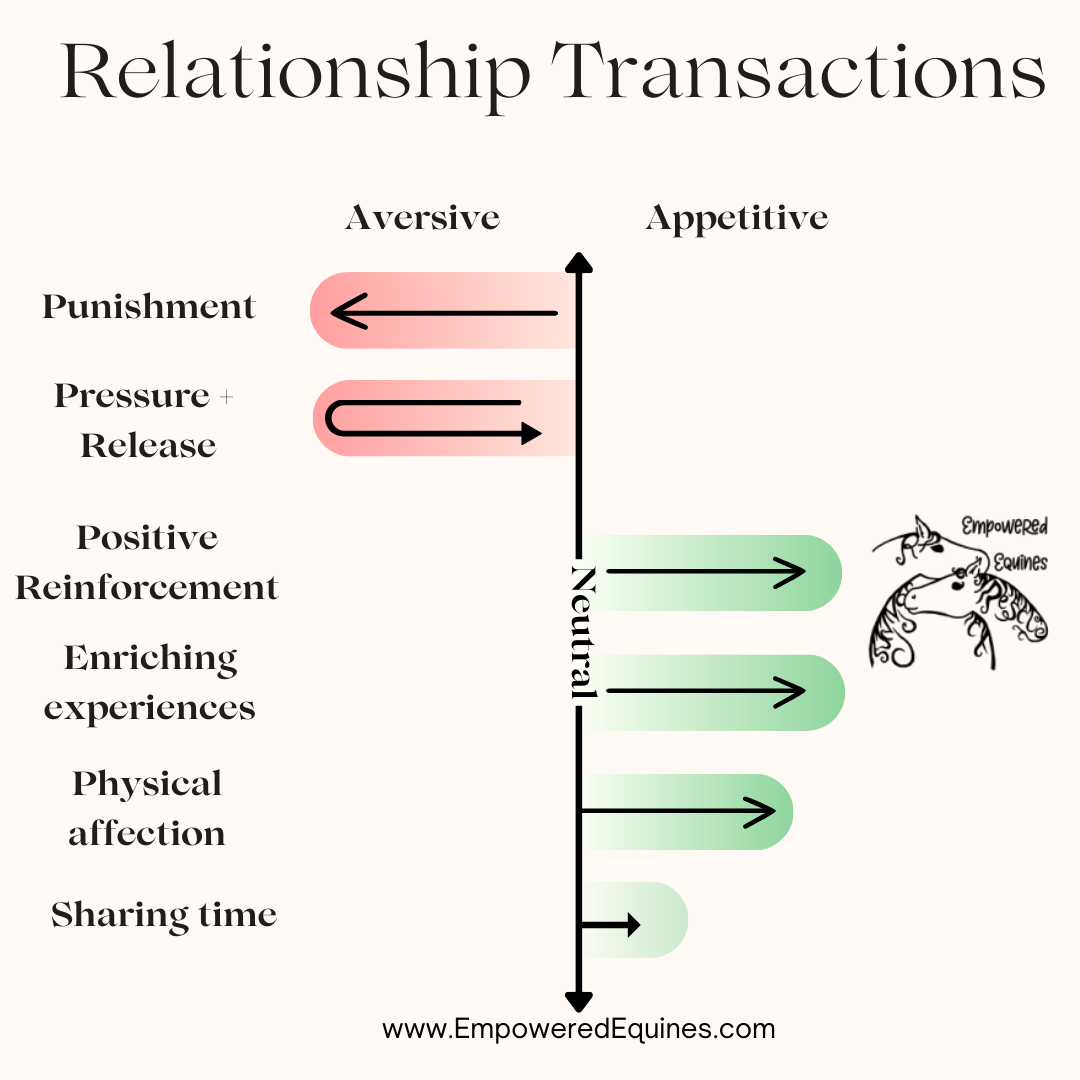Relationship Transactions
Many people struggle with the transactional nature of R+. "You do this for me, I do this for you". We feel it with R+ because we are physically giving the horse something when they do as we ask.
The truth is IT'S ALL A TRANSACTION!
Every interaction with our horse is a transaction, they are learning "was this a good experience?" Or bad? Safe or unsafe? When we train with R- we are also entering in a transaction, "you do this for me, or i will do this to you more and harder until you do"... we apply an aversive (usually physical pressure but it can also be a learned aversive that's non-physical) then when they comply, we relieve the pressure.
If we think of it as bank transactions everytime we add and remove an aversive - we are making withdrawals from our account, conditioning our relationship as more and more aversive. We're adding stress hormones, conditioning our presence with stress.
Whereas everytime we click and feed, we are making deposits of appetitive, good feelings, into our relationship piggy bank. creating good feelings and puzzle solving neurotransmitters (dopamine).
But its not just training.
Sharing time with your horse, adds good feelings to your bank account. Just hanging out in the same space, doing and asking nothing, peaceful co-existance.
Physical affection is a big addition to our bank account, we aren't just there, we are Adding good feelings. Adding happy bonding hormones.
With R+ and enrichment, we are also providing fun adventures, exploring opportunities that are done in a way that's slow and enjoyable. With that dopamine surging as they problem solve a new experience and earn reinforcement throughout, they have a blast! Associating us with all of it.
All interactions are transactional. Some are dependent on the horse's behavior, so we can influence their behavior to be safer and healthier for both of us. Some of it is just bonding, fun times, without much behavioral contingency. But it can all be done kindly and with thought to our influence on our relationship.
Save your "withdrawals" for emergencies you haven't been able to prepare for.
